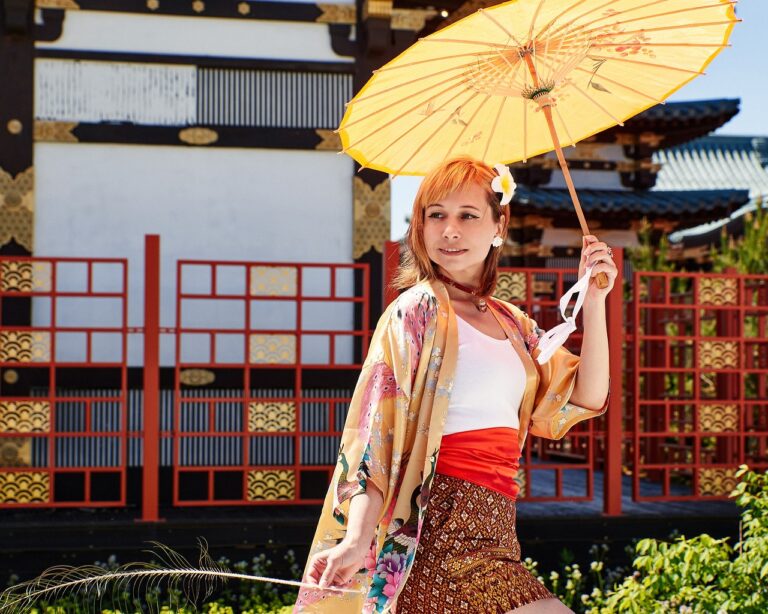Guide to Ethical Shopping in the Fashion Industry: World7, Mahadev book login, Silverexch
world7, mahadev book login, silverexch: When it comes to shopping for clothing and accessories, it’s essential to think about not just the latest trends and styles, but also the ethical implications of your purchases. The fashion industry has a notorious reputation for being one of the most polluting and exploitative industries in the world, with issues ranging from sweatshop labor to environmental degradation. However, by becoming a more conscious consumer and making informed choices, you can help make a positive impact on the industry. In this guide, we will provide you with tips on how to shop ethically in the fashion industry.
1. Understand the Impact of Fast Fashion
The term “fast fashion” refers to the rapid production of inexpensive clothing that is inspired by the latest trends seen on the runway. Fast fashion brands often prioritize speed and low costs over quality and ethical practices. By understanding the impact of fast fashion on the environment and garment workers, you can make more informed choices when shopping.
2. Research Brands
Before making a purchase, take the time to research the brands you are considering. Look into their transparency practices, labor policies, and environmental initiatives. Consider supporting brands that have a commitment to ethical and sustainable practices, such as using organic materials, paying fair wages to workers, and minimizing waste.
3. Prioritize Quality Over Quantity
Instead of buying into the cycle of constantly purchasing cheap, trendy pieces that quickly go out of style, prioritize quality over quantity. Invest in timeless pieces that are well-made and will last for years to come. By choosing high-quality items, you can reduce your overall consumption and lessen your environmental impact.
4. Shop Second-Hand
One of the best ways to shop ethically in the fashion industry is to buy second-hand clothing. Thrifting not only reduces the demand for new clothing production but also gives clothing a new lease on life. Explore thrift stores, consignment shops, and online platforms for pre-loved fashion finds. Not only will you save money, but you’ll also be supporting sustainability in the fashion industry.
5. Look for Ethical Certifications
Some brands have third-party certifications that indicate their commitment to ethical and sustainable practices. Look for certifications such as Fair Trade, GOTS (Global Organic Textile Standard), and B Corp when shopping for clothing. These certifications verify that the brand meets certain standards when it comes to labor rights, environmental impact, and social responsibility.
6. Support Local and Independent Designers
Instead of buying from mass-market retailers, consider supporting local and independent designers. By purchasing from smaller-scale designers and makers, you can directly contribute to the local economy and help sustain traditional crafts and techniques. Plus, you’ll have a unique and one-of-a-kind piece to add to your wardrobe.
7. Avoid Greenwashing
Greenwashing is a marketing tactic used by some brands to make their products seem more environmentally friendly than they actually are. Be wary of vague or misleading eco-friendly claims, and instead, look for tangible evidence of a brand’s commitment to sustainability. Do your own research and ask questions about a brand’s practices before making a purchase.
8. Educate Yourself
Stay informed about the fashion industry’s impact on the environment and society by educating yourself on the issues at hand. Follow ethical fashion blogs, documentaries, and social media accounts that highlight sustainable fashion practices and provide resources for conscious consumers. The more you know, the more empowered you’ll be to make positive changes through your shopping habits.
9. Practice Mindful Consumption
Ultimately, the key to shopping ethically in the fashion industry is to practice mindful consumption. Before making a purchase, ask yourself if you truly need the item, if you’ll wear it multiple times, and if it aligns with your values. By becoming a more conscious consumer and thinking critically about your purchasing decisions, you can contribute to a more sustainable and ethical fashion industry.
As consumers become more aware of the impact of their purchases, the fashion industry is slowly but surely shifting towards more ethical and sustainable practices. By following the tips in this guide and making thoughtful choices, you can be a part of this positive change and help shape the future of fashion for the better.
FAQs
Q: How can I tell if a brand is truly ethical?
A: Look for brands that are transparent about their supply chains, labor practices, and environmental initiatives. Third-party certifications and independent audits can also provide reassurance of a brand’s ethical commitments.
Q: Is sustainable fashion more expensive?
A: While sustainable fashion may have a higher upfront cost due to the use of quality materials and ethical labor practices, investing in durable, long-lasting pieces can actually save you money in the long run. Additionally, shopping second-hand and supporting local designers can be more budget-friendly options.
Q: What can I do with clothing I no longer want?
A: Instead of throwing away unwanted clothing, consider donating it to a charity, hosting a clothing swap with friends, or selling it through consignment or resale platforms. Recycling or upcycling old garments is another sustainable option to extend the lifespan of your clothing.







